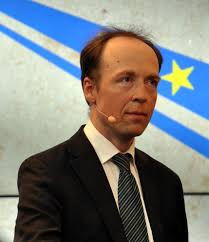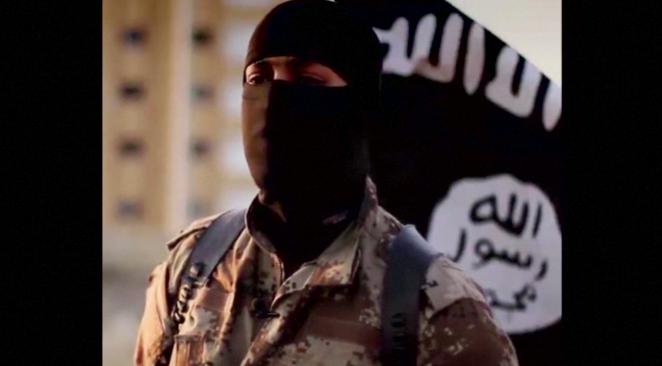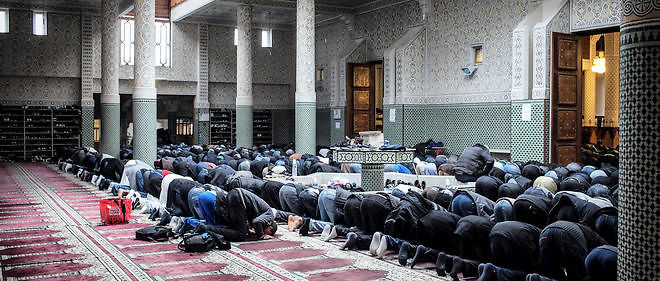The Norwegian parliament has amended the Penal Code to criminalize blasphemy in the wake of the republication of Danish cartoons that lampooned Prophet Muhammad (peace and blessings be upon him) by a Norwegian magazine, Christian and Muslim leaders in Norway said on Tuesday, February 14. “Law 150-A, which has been approved by parliament, criminalizes blasphemy and clearly prohibits despising others or lampooning religions in any form of expression, including the use of photographs,” Norway’s Deputy Archbishop Oliva Howika told reporters after a meeting in Doha with Sheikh Yusuf Al-Qaradawi, the head of the International Union of Muslim Scholars. Howika was among a Norwegian delegation that also included the chairman of the Supreme Islamic Council in Norway, Mohamed Hamdan. “Under the new law, the crime of blasphemy will be punished either by a fine or imprisonment,” Howika said, promising Qaradawi to fax him a copy of the law after being published in the country’s official gazette. Hamdan regretted the burning of the Norwegian embassy in the Syrian capital Damascus, but said the government had blamed the magazine for the violent reaction. “The Norwegian government made it clear more than one time that it would not condone blasphemy,” he said. Last September, Denmark’s mass circulation daily Jyllands-Posten ran 12 cartoons of Prophet Muhammad (PBUH). One of the photos showed the prophet as wearing a bomb-shaped turban and another showing him as a knife-wielding nomad flanked by shrouded women. Many European newspapers, including the Norwegian Magazinet, reprinted the drawings, triggering an outcry across the Muslim world and calls to boycott Danish products and Norwegian products. Any image of the Prophet — let alone biting caricatures — is considered blasphemous under Islam.? The editor of the Norwegian magazine at issue apologized to Muslims on February 10, for publishing the cartoons. Vebjoern Selbekk, who initially defended his January 10 publication of the cartoons in his magazine as an expression of press freedom, appeared before TV cameras shaking hands after his apology with Muslim leaders. Apology Accepted The delegation distributed copies of the magazine’s apology note to the Muslim minority after the meeting with the prominent Muslim scholar as well as an apology translated into Arabic from the minister of labor. “We accepted the apology in principle,” Qaradawi said. “We do appreciate the Norwegian stance which is different from that taken [initially] by Denmark. The Norwegian prime minister has condemned the cartoons at the very outset.” The Danish newspaper has apologized for offending Muslims, although not for printing the drawings. Four months after the publication, Danish Prime Minister Anders Fogh Rasmussen on Monday, February 13, met with a Muslim group to discuss the fallout from the cartoons crisis. He initially refused to meet ambassadors of Muslim countries to contain the crisis under the pretext of free speech. “Muslims want all people to live in peace, cooperation and love. We don’t call for strife. All people are created by God, so there was no need for this strife,” Qaradawi told reporters.. “We were deeply hurt by the cartoons. The Danish newspaper could have defused the crisis by offering an immediate apology to the Muslims. Had it apologized, the issue would have been resolved,” he said. He pointed out that there is a difference between “freedom of expression” and freedom of insulting” “Freedom of expression is all about expressing an opinion. In the cartoons case, there is no opinion counter-opinion,” he said. Qaradawi called anew on the United Nations to adopt a resolution banning blasphemy to head off similar incidents in the future. He also urged the European Union to criminalize blasphemy against any religion, including pagan religions. The Organization of the Islamic Conference (OIC) is pressing for a ban on religious intolerance to be part of the bedrock of a planned new United Nations human rights body. According to the text of an OIC proposal, the new UN body should state clearly that the “defamation of religions and prophets is inconsistent with the right to freedom of expression” and that states, organizations and the media have a “responsibility in promoting tolerance and respect for religious and cultural values.”
Norway: Norway Criminalizes Blasphemy






